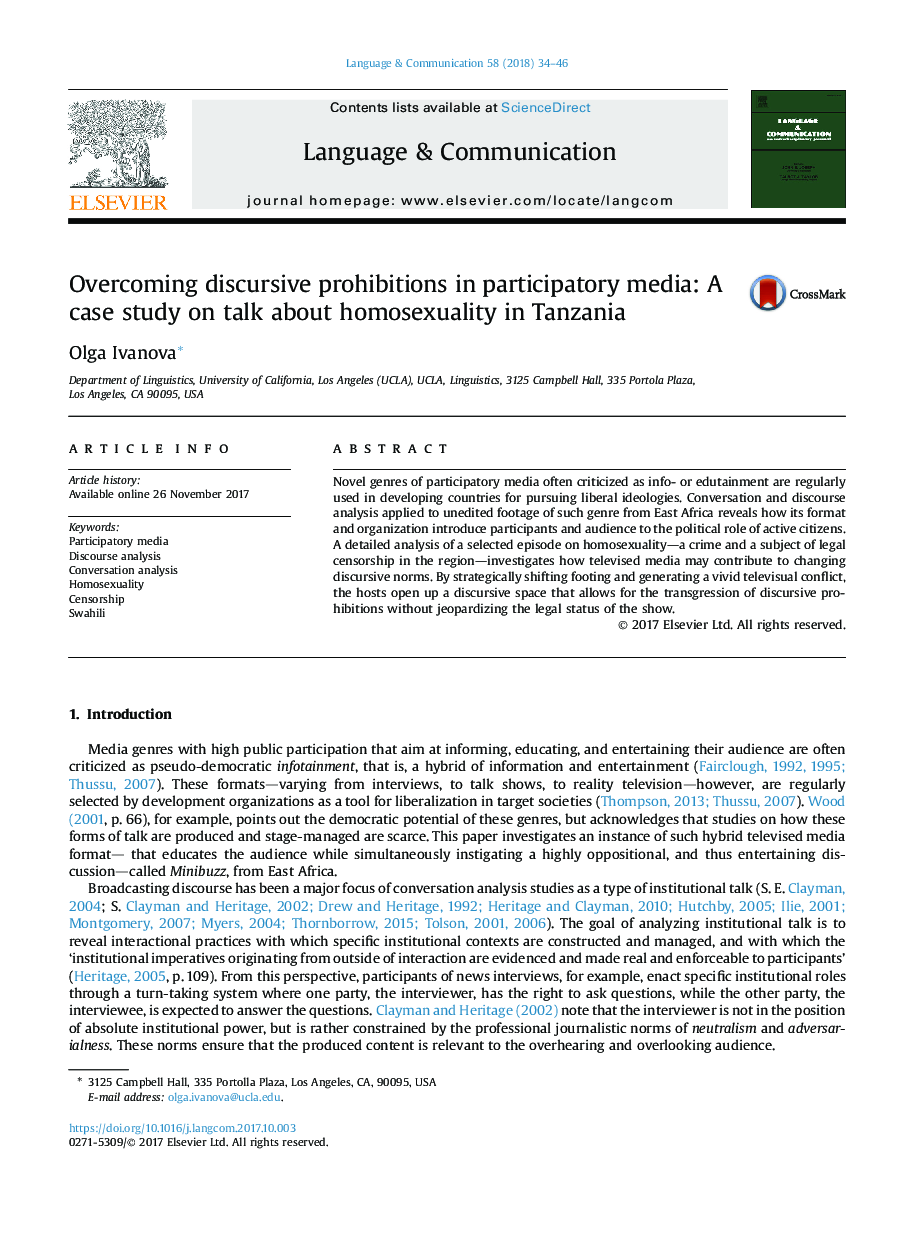| Article ID | Journal | Published Year | Pages | File Type |
|---|---|---|---|---|
| 7298278 | Language & Communication | 2018 | 13 Pages |
Abstract
Novel genres of participatory media often criticized as info- or edutainment are regularly used in developing countries for pursuing liberal ideologies. Conversation and discourse analysis applied to unedited footage of such genre from East Africa reveals how its format and organization introduce participants and audience to the political role of active citizens. A detailed analysis of a selected episode on homosexuality-a crime and a subject of legal censorship in the region-investigates how televised media may contribute to changing discursive norms. By strategically shifting footing and generating a vivid televisual conflict, the hosts open up a discursive space that allows for the transgression of discursive prohibitions without jeopardizing the legal status of the show.
Related Topics
Social Sciences and Humanities
Arts and Humanities
Language and Linguistics
Authors
Olga Ivanova,
